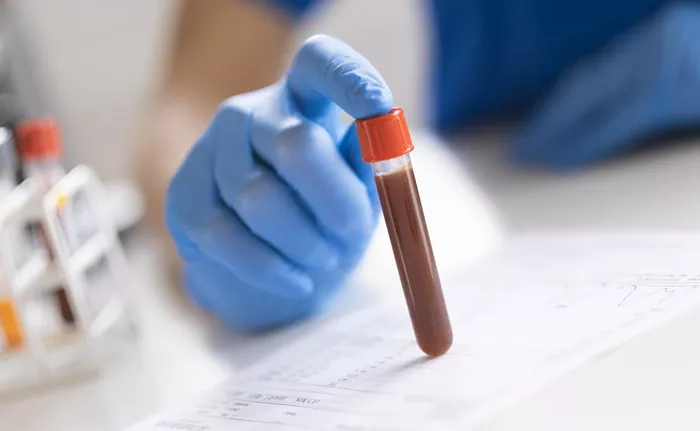A new study has found that simple blood tests could help doctors predict when prostate cancer treatment is likely to stop working. The findings could help patients get better care by adjusting treatment earlier.
Published in The Journal of Molecular Diagnostics, the study looked at 140 men with advanced prostate cancer. Some had hormone-sensitive prostate cancer, while others had a more advanced form known as castration-resistant prostate cancer.
These are both serious conditions where tumors often spread and become harder to treat over time.
Researchers from Palacký University and University Hospital Olomouc in Czechia found that three blood markers—platelet levels, C-reactive protein (CRP), and chromogranin A (CGA)—can show if a common treatment combination is likely to fail.
This treatment includes hormone-blocking therapy (called androgen deprivation therapy) and newer drugs that target hormone pathways.
Dr. Jan Bouchal, the lead author of the study, explained that while this combined therapy is now commonly recommended for advanced cases, doctors don’t yet have a reliable way to track when it’s no longer working. “To improve outcomes, we need better markers that tell us when the treatment is failing,” he said.
To find those markers, the research team studied blood samples collected before treatment began. They measured several substances, including a group of molecules called microRNAs, a gene related to hormone receptors, and other common blood markers like PSA, LDH, ALP, and more.
For patients with hormone-sensitive prostate cancer, high levels of platelets, CRP, and CGA in the blood were linked to worse treatment outcomes. For patients with castration-resistant prostate cancer, two other indicators—miR-375 and the lymphocyte-to-monocyte ratio (LMR)—stood out as signs that treatment may not work well.
Dr. Hana Študentová, co-lead author of the study, said, “By checking these blood markers, doctors can better understand how a patient’s cancer is progressing. That can help them make quicker, more personalized treatment choices.”
One key discovery was that high platelet levels could mean that the cancer is more likely to spread or resist treatment. This supports other recent research showing that platelets—the cells in blood that help with clotting—may also help cancer grow and avoid the immune system.
The good news, according to Dr. Bouchal, is that these blood tests are already available in many hospitals. “They’re easy to use and can give doctors useful information to guide treatment decisions,” he said.
The study suggests that with more testing in larger patient groups, these blood-based biomarkers could become a standard part of prostate cancer care—especially for aggressive and advanced cases.
In short, this research shows that a few simple blood tests might help doctors spot when prostate cancer treatment is starting to fail—giving patients a better chance to adjust therapy and fight the disease more effectively.
Related topics:
- Fewer Men Get Unnecessary Prostate Cancer Surgery Thanks To Smarter Screening
- Diabetes Drug May Help Fight Prostate Cancer, Study Finds
- New Spit Test Shows Higher Accuracy In Detecting Prostate Cancer


